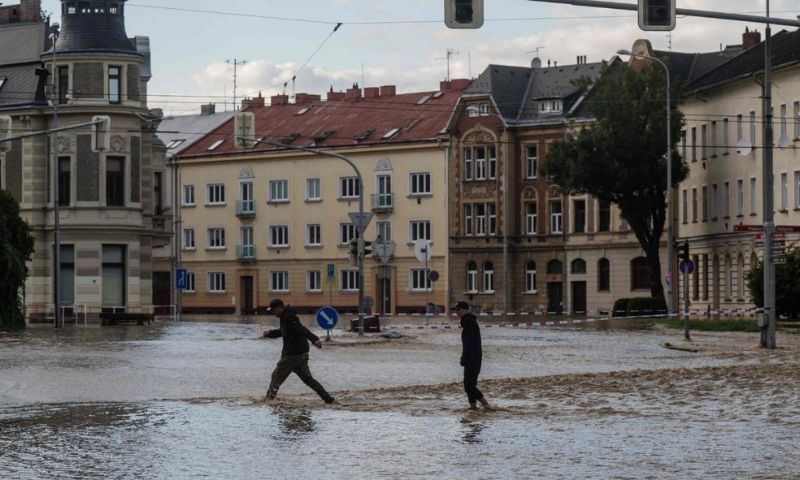VIENNA: Storm Boris has sparked catastrophic flooding across central Europe, causing at least 15 fatalities, disrupting power supplies, and cutting off entire communities as the region grapples with the aftermath of the severe weather, authorities said on Monday.
Since Friday, the storm has battered Austria, the Czech Republic, Hungary, Romania, and Slovakia with high winds and unprecedented rainfall. The extreme weather has led to the bursting of dams, submerged neighborhoods, and widespread infrastructure damage.
In Austria, the hardest-hit area, authorities reported the deaths of two elderly persons, aged 70 and 80, who were found in their flooded homes in Lower Austria. The province has been particularly affected, receiving five times the usual amount of September rainfall, according to meteorologists from Geosphere.
The torrential rains have resulted in the breach of 12 dams and left thousands of households without electricity and water. Emergency services have evacuated hundreds of people, including those rescued from rooftops by helicopter.
Lea, an 18-year-old student from Vienna, described the damage, saying, “Because the rain was so extreme, we have a hole in our ceiling at home now.” The flooding has also disrupted river cruises, with a vessel carrying 142 Swiss tourists forced to dock in Vienna.
In the Czech Republic, one person drowned in a swollen river near Bruntal, and seven others are missing. In Krnov, the destruction has been described as a “nightmare” by local resident Eliska Cokreska, who reported widespread damage to infrastructure and property.
Poland has updated its death toll to four, with Prime Minister Donald Tusk announcing a billion zloty ($260 million) aid package to support the affected regions. The storm has prompted significant evacuations, and while waters are receding in some areas like Klodzko, further flooding is feared. In the town of Glucholazy on the Polish-Czech border, many residents have sought refuge in a local school.
Romania has also been severely impacted, with the death toll rising to seven. Prime Minister Marcel Ciolacu noted that the volume of water was nearly three times greater than that of previous severe flooding events, describing the situation as a “fury of nature.”
In Hungary, the government has mobilized over 350 soldiers to bolster flood defences along the Danube and other major rivers expected to rise further due to the ongoing storm.
Experts attribute the increasing frequency and severity of such extreme weather events to climate change, driven by human activities and greenhouse gas emissions.























